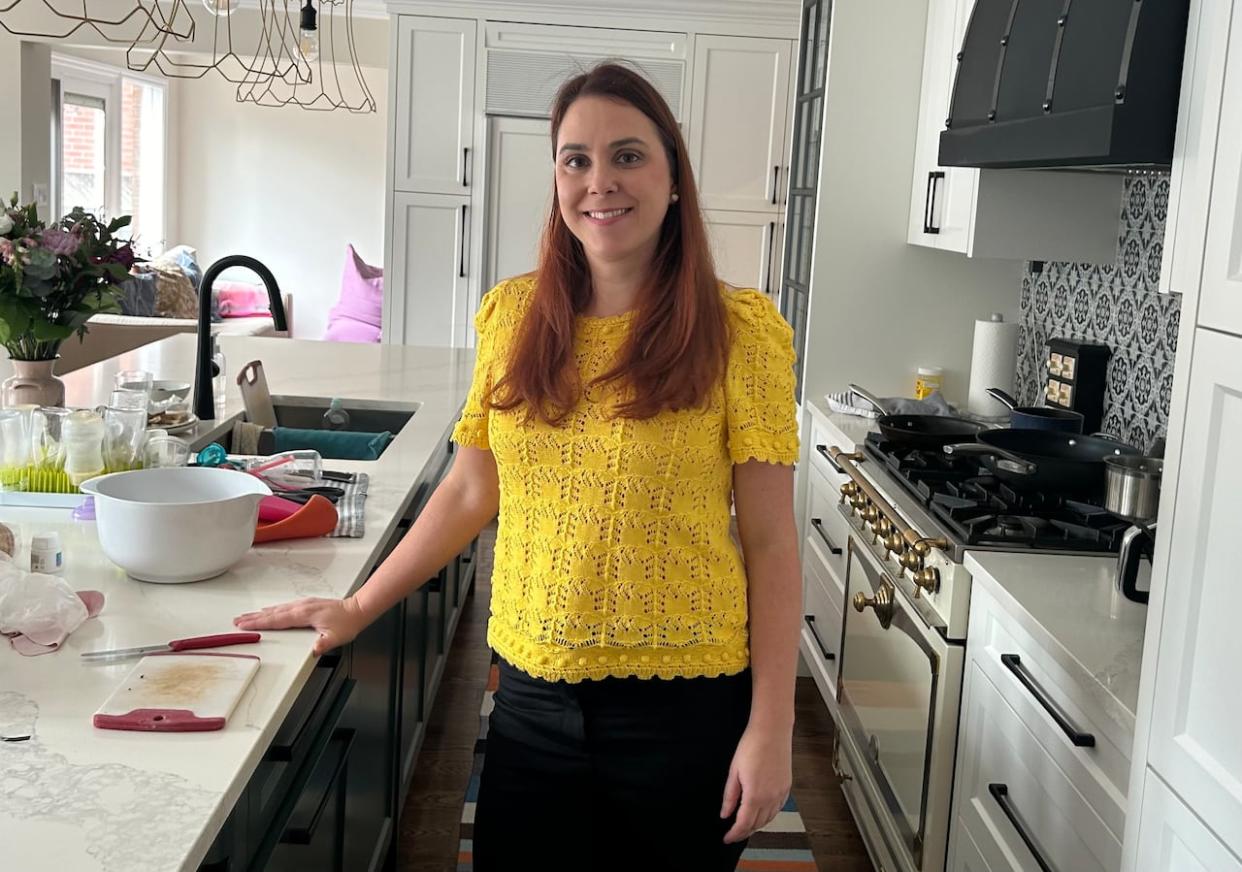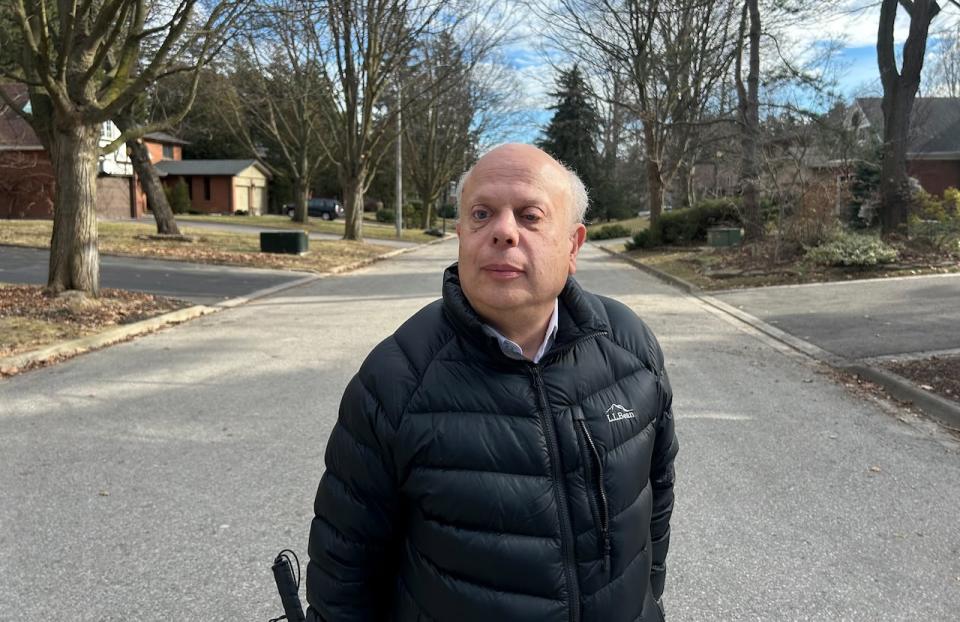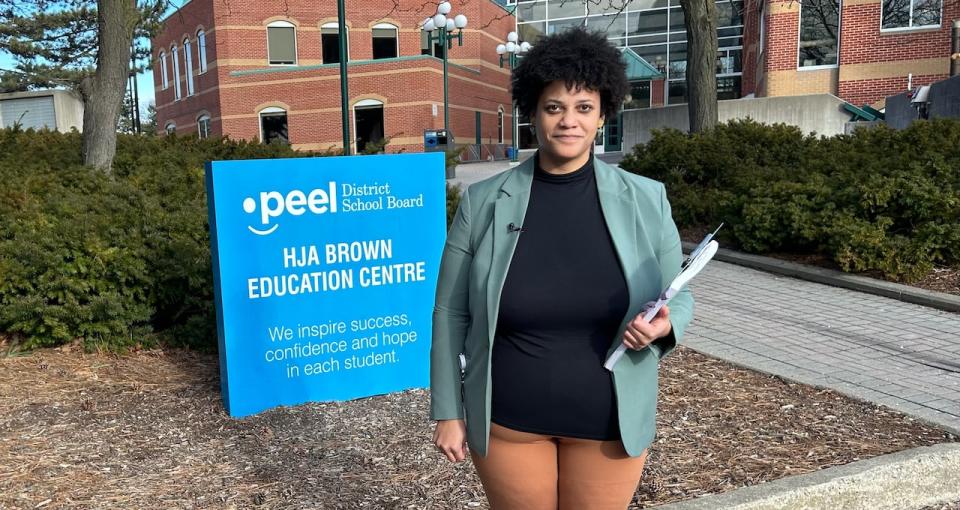Peel school board backtracks on reassigning special ed teachers after outcry from parents

Teachers of children with disabilities at the Peel District School Board who had been warned they could be moved to other departments in the coming school year are getting a reprieve — at least for this year.
Last week, the teachers were warned that they could be shifted to different roles within the board. But within the last couple of days, the board began sending out letters rescinding the plan.
The board's change of heart is welcome news to David Lepofsky, chair of the Access for Ontarians with Disabilities Act Alliance, who has a child who is visually impaired.
"It's a relief, but it's also a warning about how vulnerable our visually impaired kids and other students with special needs are within the school boards," he told CBC Toronto. "They need to be protected."

David Lepofsky of the Accessibility for Ontarians with Disabilities Act Alliance says the supports that school boards provide to students with disabilities are a right, not a privilege. (Mike Smee/CBC)
The PDSB employs hundreds of teachers who don't work full-time in traditional classroom settings. Instead, they work from the board's head office for one of 16 departments, like math, the equity and Indigenous department, or the special education department. As specialists, they help develop strategy at the board's headquarters, as well as work in classrooms for varying periods of time.
Those 288 teachers received notices earlier this month that the departments for which they work may not be able to afford them in the 2024-2025 school year. Because all are qualified teachers, they were told they would be redeployed to classrooms, or other roles within the board.
The plan was a cost-saving measure, according to the PDSB's Tiffany Gooch, executive lead of public engagement and communications.
"No one is losing their job," she said in a statement to CBC Toronto.

The PDSB's executive lead of public engagement and communications, Tiffany Gooch, says the board puts a priority on the needs of its students with 'exceptionalities,' which is why the status quo will be maintained this year. (Mike Smee/CBC)
"We realize this is an anxiety-ridden moment for parents of students with exceptionalities, and that any conversation about staffing changes would make them worried about what that means for their child" she told CBC Toronto in an interview. "That's why there is no change for next year for the staffing for the visually impaired, for the hard of hearing, for itinerant teachers who support (those) students."
No guarantees for future school years
Parents had worried that their disabled children could be deprived of vital services in the year ahead. But although they have a reprieve for the 2024-25 school year, there's no guarantee that they won't lose them in the following years.
Gooch says moving forward, each department will decide annually how many staff members it will need in the school year ahead.
Each board is funded according to the number of pupils it has, and when enrolment declines, so do the school board's budgets, she said.
She says the board feels a deep responsibility to the children with disabilities in its care. "But we still have a fiscal responsibility to make those decisions on an annual basis, based on what funding we receive from the province," she said.
The lack of certainty about whether special needs teachers will be available in the years ahead worries Lepofsky.
"We need that assurance," he said. "We need that peace of mind and our children need those services. And they deserve those services."
'An extra fight that we really don't need'
Amy Kedrosky's five-year-old daughter, who is blind, attends a PDSB school. She says the school services her daughter currently enjoys — instruction in braille, for instance, or how to move around safely using a cane — are invaluable.
"She's a very happy kid at school," Kedrosky said. "It's meaningful for her."
The prospect of losing those special services in the years ahead "makes me feel very concerned.... If she's not learning braille she's not going to be able to access the school curriculum, or the broader world.
"This is an extra fight that we really don't need," she said.
Lepofsky sent a letter to Education Minister Stephen Lecce earlier this week asking the province to step in and force the Peel board to backtrack on its redeployment plan.
A spokesperson for Lecce, Isha Chaudhuri, said in an email: "We have ... invested a historic $3.4 billion in our Special Education Grant funding across the province, of which the Peel District School Board has received $227.4 million in funding this year. The Ministry expects school boards to determine the best staffing arrangements to support learning in classrooms, so students can go back to basics on what matters most: reading, writing and math."
CBC Toronto contacted the Peel Elementary Teachers Local multiple times for its views on the board's plans. The union has yet to respond.


